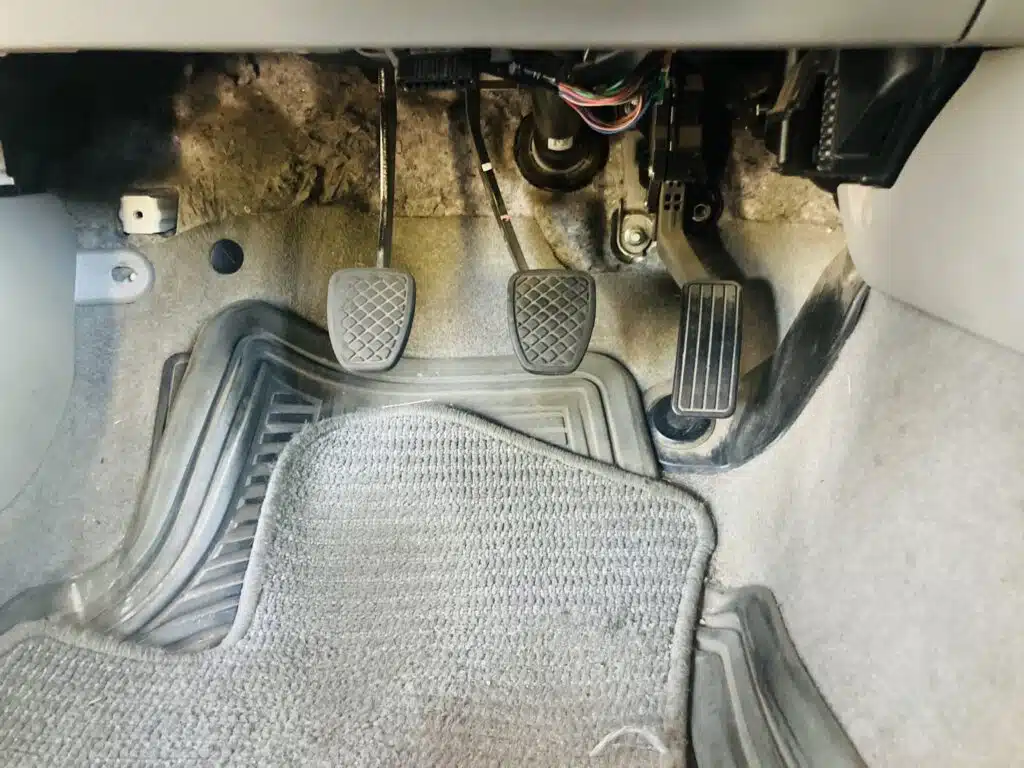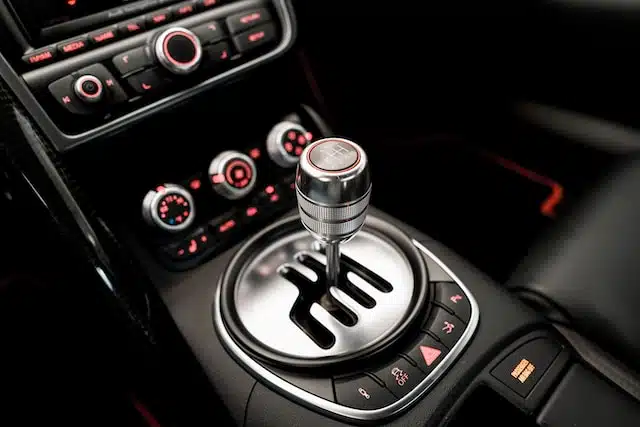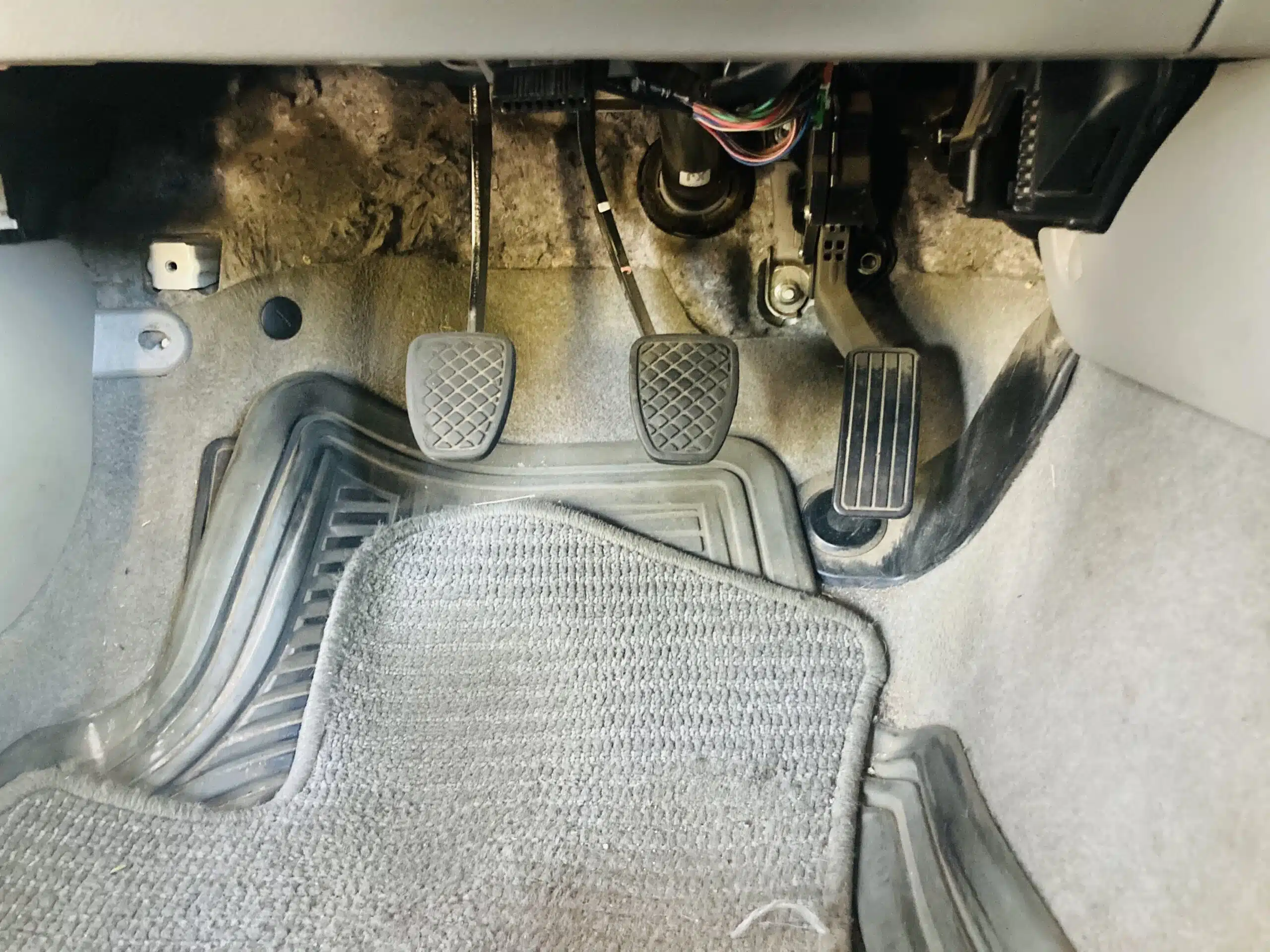
Vehicle owners often encounter a range of noises that their vehicle may generate over time. Some sounds get ignored, while others demand immediate attention. One such irksome sound is the squeak emanating from the clutch pedal. While it might not always signify a grave issue, it can be severely annoying and frustrating. This article aims to help you understand the reasons behind a squeaky clutch pedal and provide potential solutions.
Squeaky Clutch Pedal: Troubleshooting and Fixes
| Step | Action | Potential Issue | Solution |
|---|---|---|---|
| 1. Initial Inspection | Engage handbrake, turn on ignition, car in neutral, listen. | Low growl noise (Transmission problem) | Seek professional help |
| 2. Partial Clutch Engagement | Press down clutch pedal partially without shifting gear. | High-pitched squeak (Throw-out bearings or clutch release) | Check/replace throw-out bearing |
| 3. Full Clutch Engagement | Fully press the clutch pedal to the floor. | Squealing noise (Bushing or wheel bearing issue) | Inspect bushing/wheel bearing for wear and tear |
| Causes | Age, Dirt, Contamination, Damaged Throw-Out Bearing, Friction | Lubricate, Clean, Replace parts as necessary | |
| Solutions | Lubrication, Replacement, Cleaning, Waiting | Apply silicone-based lubricant, replace worn parts, professional cleaning, or allow time for self-adjustment | |
Understanding the Clutch Pedal
The clutch pedal is one of the three primary pedals in manual transmission vehicles, the other two being the brake and accelerator. The clutch pedal is used to disengage the clutch, allowing the driver to switch gears.
Diagnosing the Squeak in your Clutch Pedal
Before jumping to conclusions, it is essential to confirm whether the squeaking noise is indeed originating from the clutch pedal. Follow these steps to diagnose the source of the squeak:
- Initial Inspection: Ensure your handbrake is on, turn on the ignition, and keep the car in neutral. Listen for any unusual noise. If you hear something similar to a low growl, it might indicate a transmission problem, and professional help is advised.
- Partial Clutch Engagement: Partially press down the clutch pedal without shifting the gear. If you hear a high-pitched squeak, it indicates a problem with the clutch, possibly related to the throw-out bearings or the clutch release.
- Full Clutch Engagement: Fully press the clutch pedal to the floor. If you hear a squealing noise at this point, it might point towards an issue with the bushing or wheel bearing.
If you don’t hear any noise during these steps, then the squeaking isn’t coming from your clutch. However, if you observe any other irregularities, like the clutch sticking or slipping, you might need a professional inspection.
Causes of a Squeaky Clutch Pedal
A squeaky clutch pedal can be a result of various factors, including:
Age
Just like any other component of a vehicle, the clutch pedal is susceptible to wear and tear. It is the only pedal that is fully pressed and released every single time, making it more prone to aging and, eventually, squeaking.
Dirt
The engine of a car isn’t the cleanest place, with grease and dust accumulating over time. This dirt can cause the pedal to stick and not move smoothly, thereby leading to squeaking noises.
Contamination
If contaminants like dirt, oil, or other particles find their way onto the pressure plate or the clutch disc, they can cause the clutch pedal to squeak when pressed and released.
Damaged Throw-Out Bearing
The throw-out bearing, which contacts the pressure plate when disengaging the clutch, can get damaged due to continuous friction and age.
Friction
The clutch pedal gets a lot of use, and over time, its parts can shift slightly. This doesn’t hamper the clutch operation but can cause parts to rub against each other and squeak.
How to Fix a Squeaky Clutch Pedal

There are several ways to tackle a squeaky clutch pedal. However, it’s crucial to remember that these should be attempted only if you’re confident about what you’re doing. Otherwise, it’s best to consult a professional. Here are the most common solutions:
Lubrication
Applying a good lubricant can help the clutch move smoothly again. While there are many types of grease to choose from, most people rely on WD-40. However, it should be noted that some grease products can have a bad odor and may contain petroleum distillates that can speed up the decay of rubber and plastic. Therefore, a silicon-based lubricant is recommended as it doesn’t have these disadvantages.
Replacement
While replacing the entire clutch can be expensive and usually unnecessary, to get rid of the pedal squeaking, you might have to replace a few worn-out components, such as the throw-out bearing.
Cleaning
If the bell housing that surrounds the clutch’s transmission gets damaged and allows contaminants inside, it needs to be cleaned professionally.
Wait
If the squeaking sound results from friction between multiple components, you can wait for a few days as the parts might readjust themselves while driving.
Conclusion
A squeaky clutch pedal is not always a sign of a serious problem, but it’s undoubtedly annoying. More often than not, some lubrication will do wonders and help you quiet your car. And, if that’s not working, you can always get a replacement for your car’s worn parts.
However, never ignore any noises coming from your car, and don’t hesitate to ask for assistance when you’re overwhelmed by them. Safety should always be your top priority!


